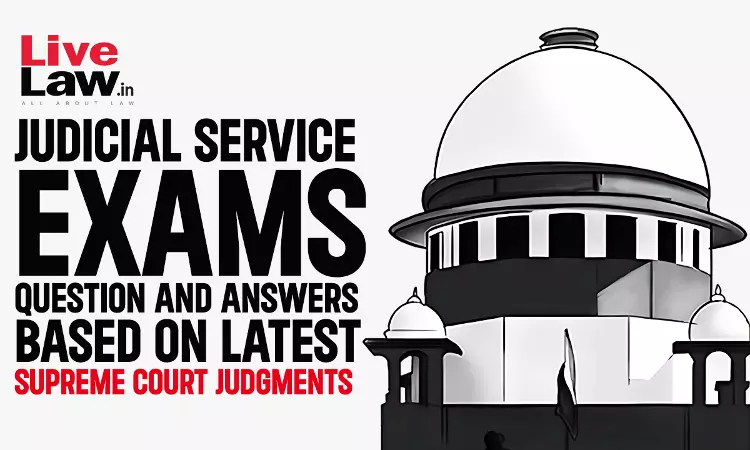Important MCQs Based On Latest Supreme Court Judgments For Law Examinations
Yash Mittal
24 March 2024 9:39 AM IST

Next Story
24 March 2024 9:39 AM IST
Q 1. Against an accused, a non-bailable warrant and proclamation under Section 82 Cr.P.C. is pending. Whether an application of the accused seeking anticipatory bail is maintainable before the court?a. Yes, the right to seek anticipatory bail is a statutory right under Cr.P.C. b. Yes, anticipatory bail cannot be denied because it should be heard on its merit uninfluenced by the...
